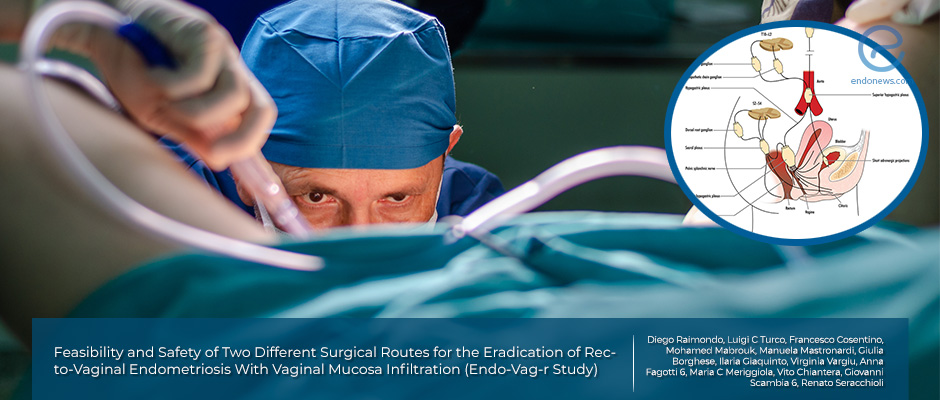Robot-assisted laparoscopy for deep infiltrating endometriosis of bowel
Deep infiltrating endometriosis is characterized by lesions larger than 5 mm that penetrate the peritoneum or invade the muscular layer of adjacent organs, affecting over 20% of women with endometriosis. Bowel involvement occurs in 5-12% of cases and may present with…
Key Points Lay SummaryDiagnosis and management of treatment in diaphragmatic endometriosis.
Diaphragmatic endometriosis is a rare extra-pelvic type of deep endometriosis with a prevalence of 0,19% to 4,75. In symptomatic women, the symptoms are characterized by non-specific chest pain, shoulder pain, right upper quadrant abdominal pain, and pneumothorax, whereas 75% of…
Key Points Lay Summary"Transumblical single-port laparoscopy" for deep infiltrating endometriosis.
Deep infiltrating endometriosis patients have multi-system involvements, severe pelvic adhesions, and pelvic pain. Dyspareunia, dysmenorrhea, infertility, gastrointestinal symptoms, and lower urinary tract symptoms seriously affect their quality of life. Although hormonal therapy may be the first choice for treating endometriosis,…
Key Points Lay SummarySurgery for Deep Endometriosis
In recent years, minimally invasive surgery has gained popularity, providing the best results in gynecologic cancers and deeply infiltrated endometriosis. With the help of a high-definition camera displayed on a TV monitor, the small structures are enlarged 4-7 times and…
Key Points Lay SummaryFertility assessment and surgical approach in endometriotic patients.
The prevalence of endometriosis is around 50-70% in women with pelvic pain, and it has been reported as 50% in patients with infertility. Severe adhesive disease associated with advanced endometriosis is a cause of fertility impairment. The relationship between endometriosis…
Key Points Lay SummarySurgical approach to rectovaginal endometriosis.
Recto-vaginal endometriosis incidence is estimated at 3.8%-37% among women with endometriosis and when it exists it's a part of deeply infiltrated endometriosis, thus advance stage endometriosis. Raimondo et al. from the Department of Obstetrics and Gynecology of the University of…
Key Points Lay Summary
 By Selma Oransay
By Selma Oransay




